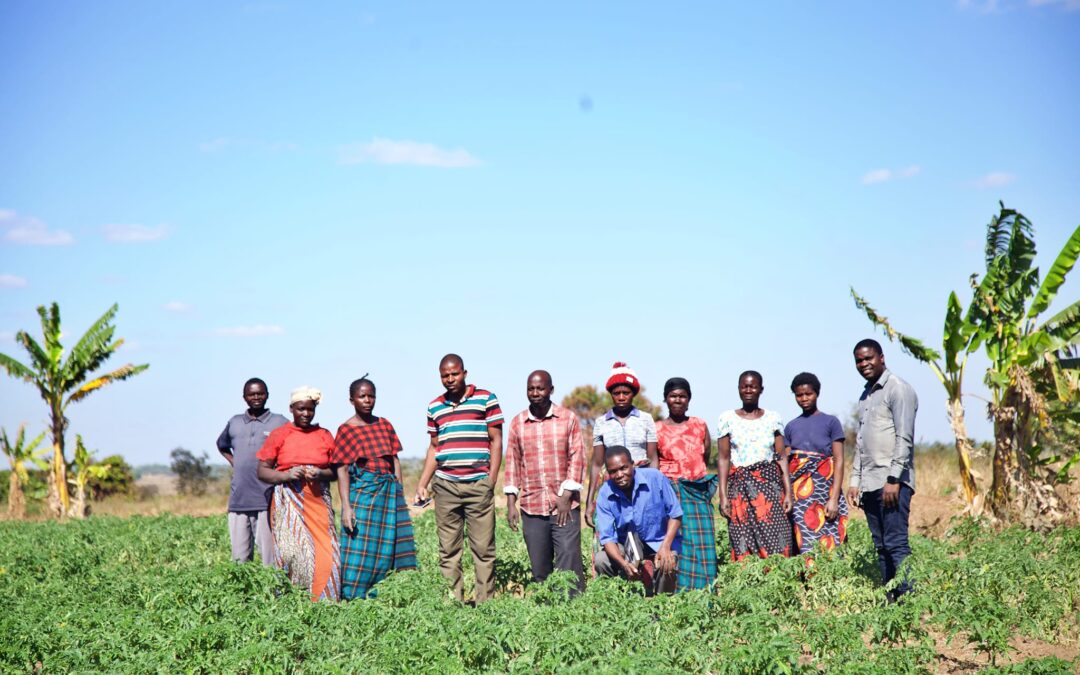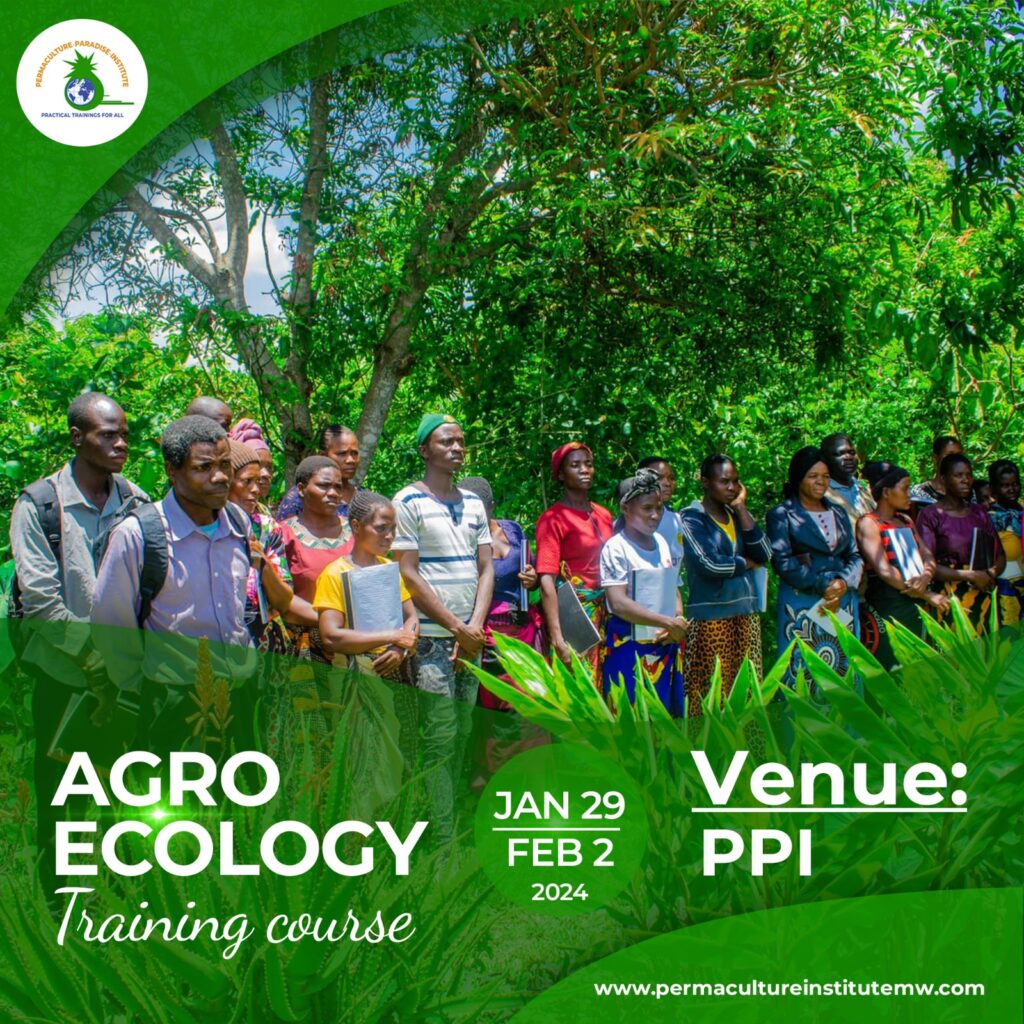In the heart of Kasungu District lies the vibrant community of Nguwe, where farmers have embarked on a transformative journey towards sustainable agriculture and food security. Through communal and individual permaculture gardens, these farmers have witnessed a remarkable transition from barren monocrops to thriving food forests. With a focus on maximizing biodiversity, dropping biomass, and nurturing soil life and fertility, the farmers are now reaping the rewards of their hard work with minimal inputs. Let’s delve into the remarkable progress achieved in just eight months since the training, highlighting the benefits of communal and individual permaculture gardens in Nguwe.
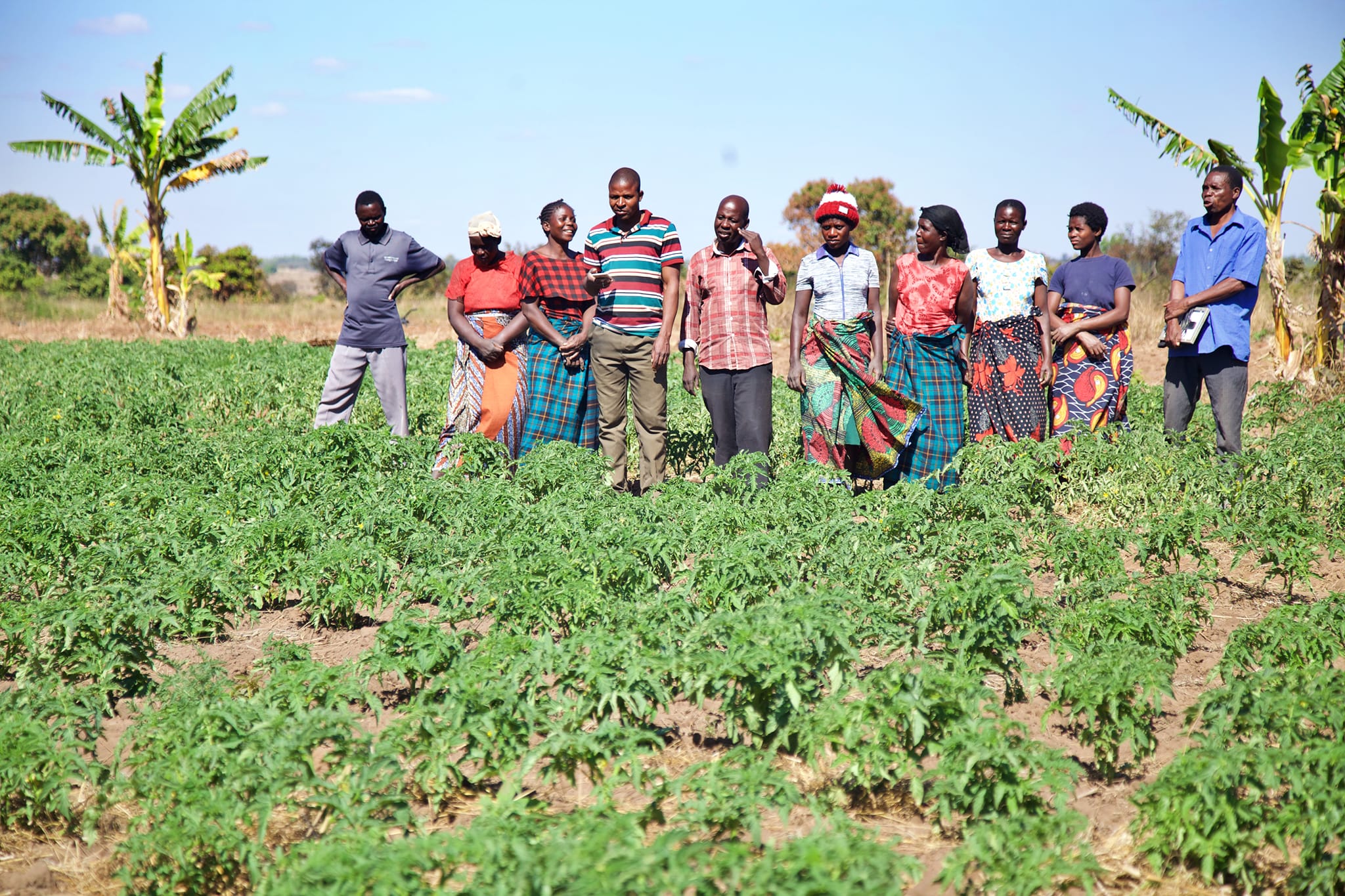
Communal Permaculture Garden: From Monocrops to Food Forest
The communal garden in Nguwe was once characterized by barren monocrops, struggling to yield sufficient harvests. However, through permaculture principles, this once-depleted land is gradually transforming into a vibrant food forest, boasting a multitude of crops taking up various layers. This shift towards biodiversity has not only improved soil health and fertility but also opened the door to multiple benefits throughout the year. The farmers are now able to enjoy diverse harvests, providing them with a sustainable source of nutrition and income.

Thriving Home Gardens: From Bare to Bountiful
Individual home gardens in Nguwe have undergone a remarkable transformation, thanks to the knowledge gained from the permaculture training. Formerly bare and unproductive, these gardens are now adorned with a variety of fruit trees. The incorporation of diverse fruit trees not only enriches the farmers’ diets but also contributes to a more balanced ecosystem. As these trees grow and mature, they offer a sustainable source of fruits, fostering resilience against environmental challenges.
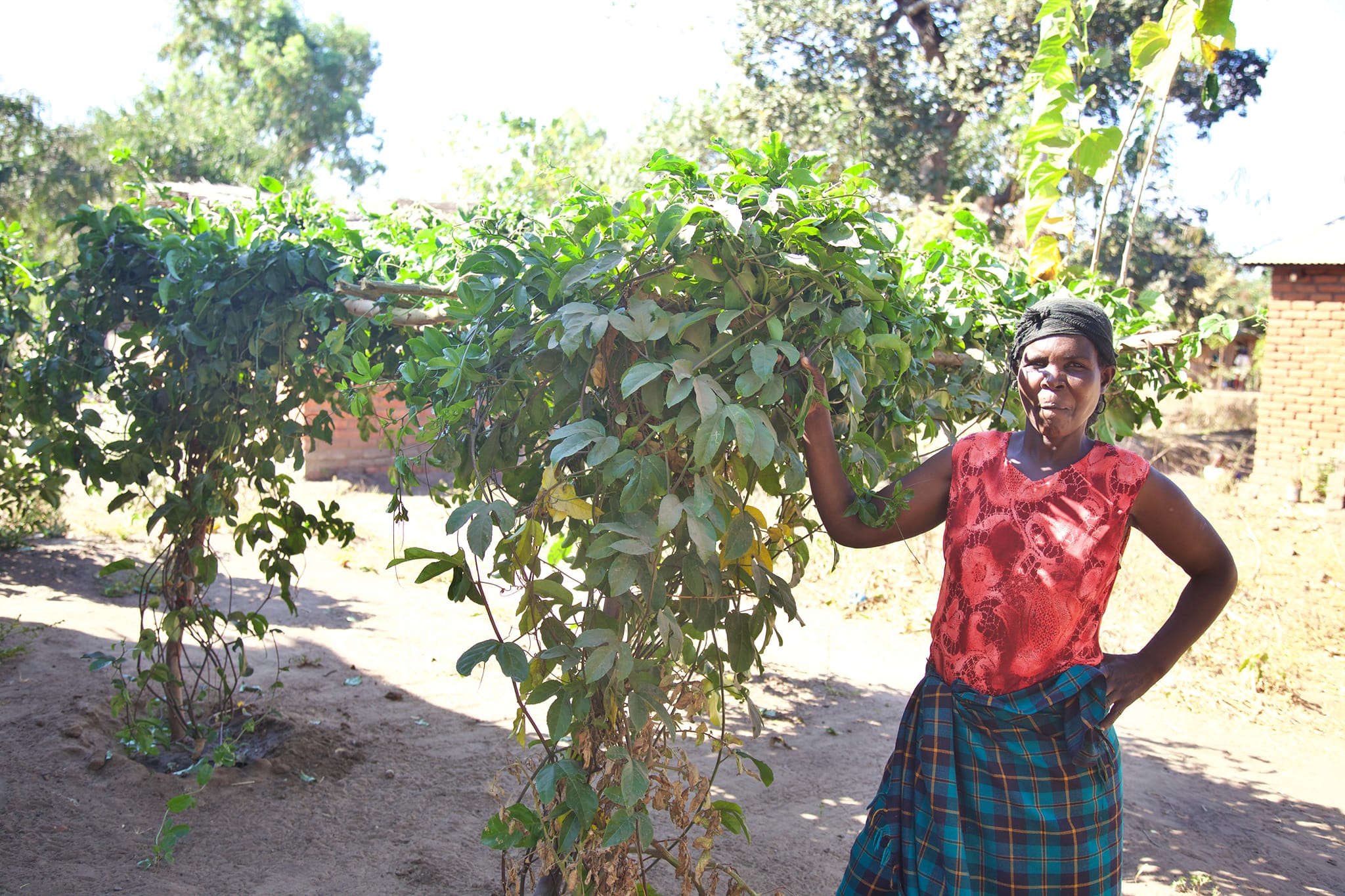
Agroforestry in Rainfed Fields: A Post-Harvest Blessing
The integration of agroforestry trees into rainfed fields has proved to be a game-changer for Nguwe’s farmers. After a successful seasonal crop harvest, these trees continue to play a crucial role in maintaining soil fertility and protecting against soil erosion. Furthermore, they serve as a valuable source of short-term firewood, breaking pest cycles, and providing a habitat for essential microbiology. The forward-thinking farmers have recognized the importance of incorporating crop residues into the soil, further enriching it and protecting it from fires and animal disturbances.

Harnessing the Power of Agroforestry in Permaculture
The success of Nguwe’s permaculture journey can be attributed to the powerful approach of agroforestry. By combining trees with crops, the farmers have created a harmonious and sustainable ecosystem that benefits both the environment and the community. This approach has empowered the farmers to reduce dependency on external inputs and instead capitalize on the natural processes at play, promoting resilience and self-sufficiency.
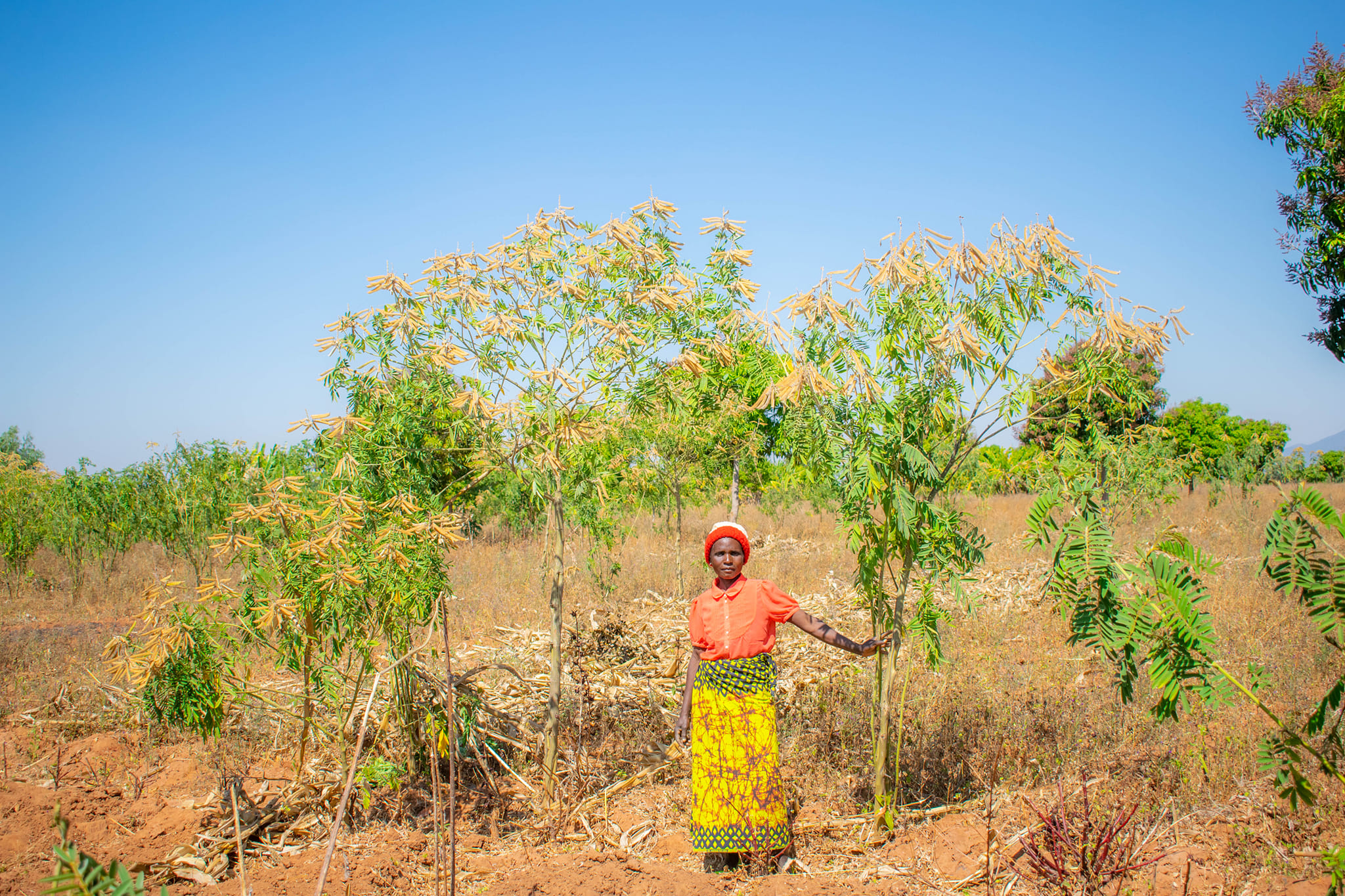
The farmers of Nguwe community in Kasungu District have embraced permaculture with open arms and witnessed remarkable changes in just eight months since their training. Communal gardens have evolved into thriving food forests, while individual home gardens now boast an array of fruit trees. In their rainfed fields, agroforestry has proved to be a blessing post-harvest, maintaining soil fertility and protecting against erosion. Through these sustainable practices, the farmers of Nguwe have not only improved their livelihoods but also demonstrated the power of permaculture and agroforestry in building resilient and flourishing communities. As they continue on this journey, their example will undoubtedly inspire others to embrace sustainable agriculture and contribute to a greener and more abundant future for all.

